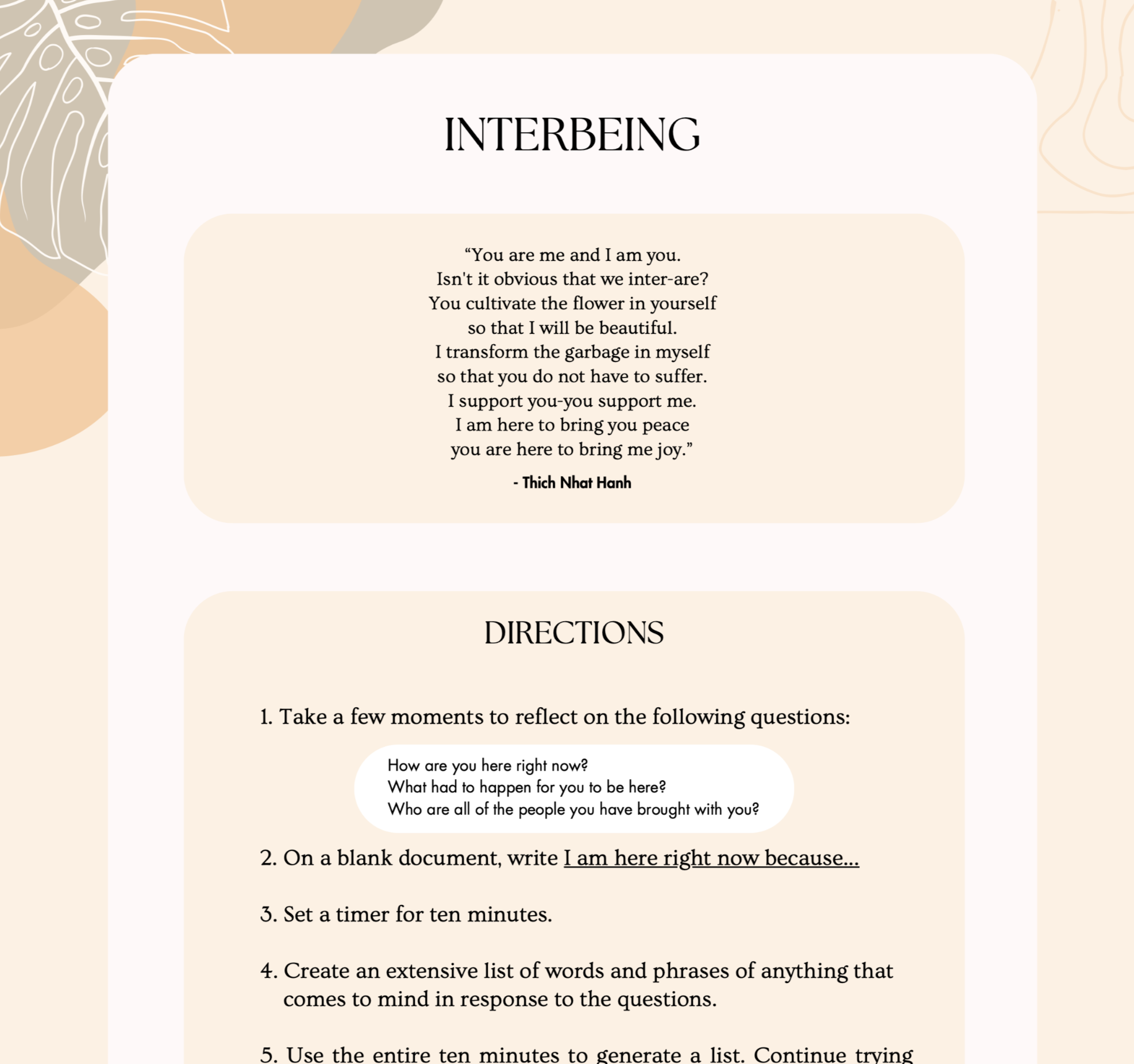Beyond the Self: The Psychedelic Path to Prosocial Behavior
Can psychedelics help us cultivate a more compassionate society? Emerging research reveals some promising pathways.
By Corinne Kneis, LPC EdM MA MAPP
Psychedelic-induced self-transcendent experiences (PI-STEs) can enhance prosocial behavior through four key psychological mechanisms:
heightened social connectedness
increased mindfulness
amplified affective (emotional) empathy
self-transcendent emotions (like awe and compassion)
Why This Matters Now More Than Ever
In an era of rising mental illness, declining global well-being, and increasing social isolation, understanding how to cultivate genuine care and concern for others isn't just academic. It's essential for our collective survival.
This research suggests that under careful clinical supervision, psychedelics may offer a rapid pathway to the kind of psychological shifts that typically take years of meditation or therapy to achieve, potentially helping us build more compassionate societies.
What the Science Says: A Landmark Study
In Roland Griffiths' 2018 landmark study at Johns Hopkins, 75 healthy participants received varying doses of psilocybin combined with meditation practices. Those who received high doses reported enhanced social connectedness during the experience. Most notably, participants demonstrated measurable increases in altruistic behavior and prosocial attitudes that persisted six months later (Griffiths et al., 2018). One participant in a similar study described it:
"The light of love brings clarity to everything... love is what makes up the world and the universe and connects everything like a network of roots”
(McCulloch et al., 2022)
What You Need to Know About Psychedelics
The paradox of ego-dissolution: Loss of self (ego-dissolution) alone can be distressing; however, when combined with feelings of interconnection, it often becomes therapeutic and prosocial
Empathy isn't enough: The research reveals that affective empathy without emotional regulation can lead to "empathic distress" and withdrawal. The combination of empathy and mindfulness may transform empathy into actionable compassion.
Neural rewiring: Brain scans show psychedelics reduce activity in the default mode network (associated with self-referential thinking) while increasing global brain connectivity, rewiring how we process self versus other.
Critical risks: These substances are contraindicated for individuals with a predisposition to psychotic disorders and require controlled clinical settings. Unregulated use has led to adverse events, including acute psychological distress (in other words, a “bad trip”).
Want to Be Kinder?
If you're interested in enhancing your prosocial tendencies without psychedelics, start with non-pharmacological avenues, including meditation practice or The Interbeing Intervention…
The Interbeing Intervention—
Spend 10 minutes listing everything that had to occur for you to exist in this moment.
Then, reflect on how this awareness changes your feelings toward yourself and others.
Download the full activity here.
This simple exercise can activate similar psychological mechanisms (mindfulness, interconnection, and awe) that underlie psychedelic prosocial effects.
Complimentary Resources
The Interbeing Intervention
Get connected to your common humanity.
Want to learn more about the psychedelic path to prosocial behavior?
References
Carhart-Harris, R. L., & Friston, K. J. (2019). REBUS and the Anarchic Brain: Toward a Unified Model of the Brain Action of Psychedelics. Pharmacological Reviews, 71(3), 316–344. https://doi.org/10.1124/pr.118.017160
Carhart-Harris, R. L., Erritzoe, D., Williams, T., Stone, J. M., Reed, L. J., Colasanti, A., & Nutt, D. J. (2012). Neural correlates of the psychedelic state as determined by fMRI studies with psilocybin. Proceedings of the National Academy of Sciences, 109(6), 2138-2143.
Griffiths, R. R., Johnson, M. W., Richards, W. A., Richards, B. D., Jesse, R., MacLean, K. A., Barrett, F. S., Cosimano, M. P., & Klinedinst, M. A. (2018). Psilocybin-occasioned mystical-type experience in combination with meditation and other spiritual practices produces enduring positive changes in psychological functioning and in trait measures of prosocial attitudes and behaviors. Journal of Psychopharmacology (Oxford, England), 32(1), 49–69. https://doi.org/10.1177/0269881117731279.
Griffiths, R. R., Richards, W. A., McCann, U., & Jesse, R. (2006). Psilocybin can occasion mystical-type experiences having substantial and sustained personal meaning and spiritual significance. Psychopharmacology, 187(3), 268-283.
Helliwell, J. F., Layard, R., & Sachs, J. (2023). World Happiness Report 2023. Sustainable Development Solutions Network. Retrieved from https://worldhappiness.report/ed/2023/
Kneis, C.R. (2024). Beyond the Self: Exploring the Link Between Self-Transcendent Psychedelic Experiences and Prosocial Behavior [Master’s thesis, The University of Pennsylvania]. https://repository.upenn.edu/handle/20.500.14332/60338
McCullough, M. E., Emmons, R. A., & Tsang, J. A. (2002). The grateful disposition: a conceptual and empirical topography. Journal of personality and social psychology, 82(1), 112.
Muthukumaraswamy, S.D., Carhart-Harris, R.L., Moran, R.J., Brookes, M.J., Williams, T. M., Errtizoe, D., Nutt, D.J., 2013. Broadband cortical desynchronization underlies the human psychedelic State. J. Neurosci., 33(38), 15171–15183. https://doi.org/10.1523/Jneurosci.2063-13.2013.
Tagliazucchi, E., Roseman, L., Kaelen, M., Orban, C., Muthukumaraswamy, S.D., Murphy, K., Carhart-Harris, R.L., 2016. Increased global functional connectivity correlates with LSD-induced ego dissolution. Curr. Biol., 26 (8), 1043–1050. https://doi.org/10.1016/j.cub.2016.02.010.





